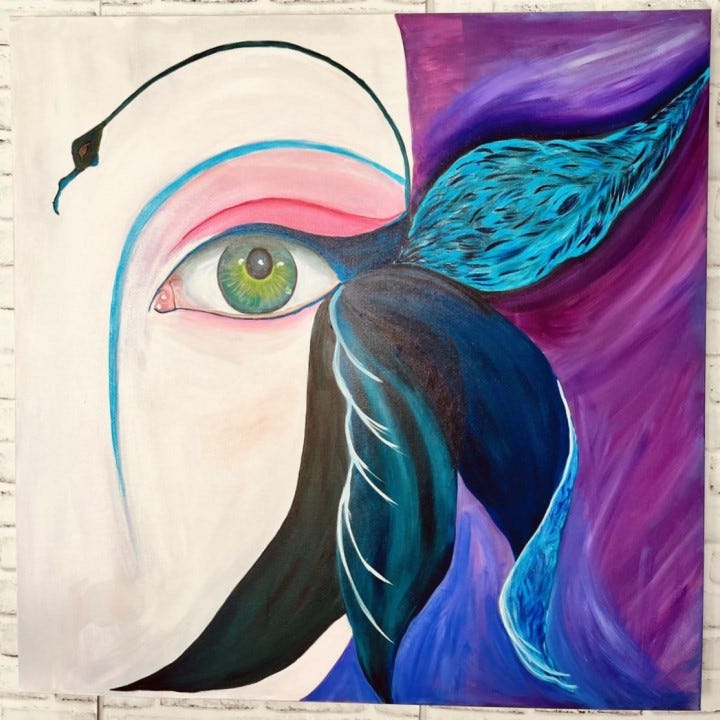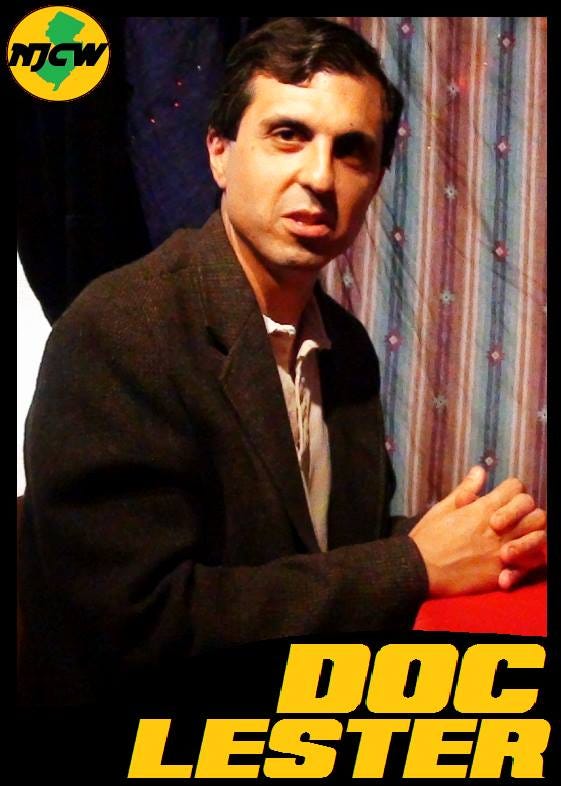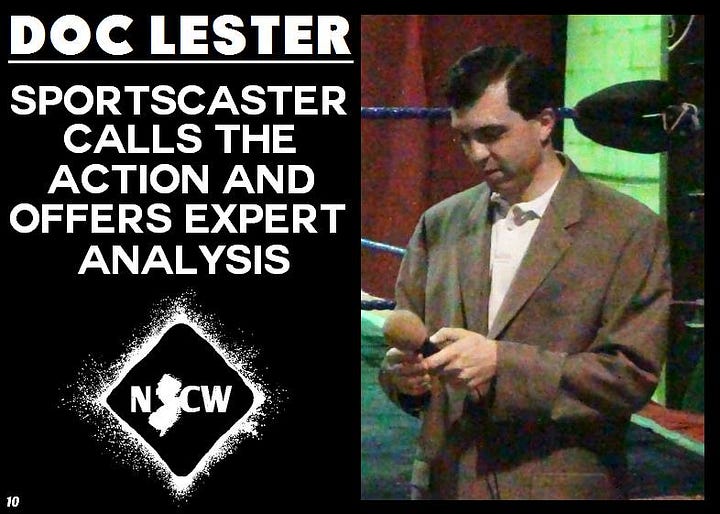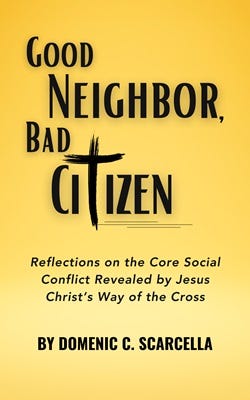Division of Labor — Life Imitates Art?
An Important Economic Reality Finds Support in Christianity & Anarchism (And Gets Lots of Play in a Recent Podcast!)

A recent interview reminded me of my weaknesses as a creator, and the ways in which people complement each other’s skills.
I returned to “The Jeff Macolino Podcast” for the June 17, 2024, episode (available at Spotify, Apple, ListenNotes, Amazon, and Podchaser), and the host and I had a well-traveled conversation that touched on various jobs we’ve each had.
NOTE: You can find all my podcasts in this list, including both visits to “The Jeff Macolino Podcast” (November 2023 was the first one).
I mentioned two of my weaknesses, and that got us discussing solutions that involve the variety of skills that different people bring to their interactions.
Not all creativity nor expressive ability is the same
First, I’m not inventive-creative. My creativity is limited to tinkering with and adapting things that have already been created. Call it, adaptive-creative.
Fortunately, I’ve always done the kind of writing that didn’t require inventing well-developed characters and plots, nor “world building.”
As I said a little more than half an hour into the podcast interview:
As a reporter, I can just observe what I’m doing and really drill down and see the connections. The logical mind gets going. … I can write about issues and topics.
The book I wrote [Good Neighbor, Bad Citizen], it’s based on the historical context and culture surrounding the Gospel stories in the Bible. … I didn’t have to go through the process that a novelist would have to do, or even a screenwriter.
I then asked Jeff — a comedian, actor and soon-to-be screenwriter — about his writing strengths, and he said:
Generally, I think I’m more of an idea guy, not a detail guy. So, almost the opposite of you.
Jeff also talked about working on ideas for a comic book and finding himself concentrating on the visuals more than the depth of the verbiage. This is another way he and I differ: I’m not visually expressive.
Sure, I worked in newspapers and contract publishing, and I was pretty good at layouts. But that’s because I understood prominence and how a reader’s eye moves around a page. I could tell you that everything on the page looked like it belonged, nothing was scattered, the “motion” within images pointed in the right (or, at least, not the wrong) direction. But I couldn’t tell you whether it was aesthetically pleasing. I was a page engineer more than a page designer.
Fortunately, I’ve grown to appreciate and even marvel at those who have these visually expressive abilities. I realize that people being skilled at different tasks, results in more goods and services available in society. This division of labor, when combined with voluntary trade, raises the general standard of living and can make our communities more robust and resilient.

Lessons from the great thinkers, including early Christians
Those who tout property rights and voluntary markets have long recognized the importance of the division of labor. Adam Smith, considered a foundational thinker in making economics a field of study, identified it as a primary driver of wealth. Murray Rothbard, perhaps the most famous of the anarchist/voluntarists among modern economists, put “Division of Labor” in the title of a major essay. And even before free markets and free association became popular positions, thinkers as far back as Socrates understood its benefits.
The Early Church took it a step further, seeing the human dignity, not only the utility, of our differences.
Paul’s First Letter to the Corinthians dates to around the year 56 A.D. Almost the entire 12th chapter is devoted to the variety of gifts people have and the harmony of people doing different things well. Shortly after writing to the Corinthians, Paul wrote the Letter to the Romans and gave a similar, but shorter, examination of “many parts of one body” (Romans 12:3-8).

How do we find our talents and intentionally develop skill? How do we learn the lessons of collaboration, healthy competition, and appreciation of each other’s gifts?
One answer is by participating in multi-person arts. To condense about a 20-minute portion of the podcast:
DOM: Learning to perform with other people, cooperating with you, that’s a big skill. … It’s an important job skill and life skill, as well. … Whether it’s acting, whether it’s music, whether it’s dance, whether it’s pro wrestling. … [Whether] it’s team sports. … You learn something that’s valuable in the workplace. It’s valuable in your neighborhood. It’s probably valuable raising a family.
…
JEFF: It goes back to knowing your own strengths and weaknesses, too. … If you know what you’re good at and what you're not good at, and you surround yourself with people who augment your weaknesses, … they fill in the gaps in your own experience.
Learning to compete (to improve quality) and cooperate (to make more benefits available to more people through exchange) is one of the best ways, as Oscar Wilde observed, that “life imitates art.”
Many Parts, One Comments Section …
What’s your contribution to the discussion? I’m excited to hear your thoughts on this article’s themes!
Did/do you participate in arts? In sports? In the art-sport known as pro wrestling? (I used to be commentator Doc Lester for an indie pro wrestling promotion):


What are you good at? What are you not so good at? What do you appreciate about others who have different strengths and weaknesses?
If you listened to the podcast, what stood out to you from it?
Any other thoughts on the points in this article?
Let me know below …






I'm a musician, I once loved entertaining people as much as playing, now I only play to entertain myself. Like most musicians, if I was stranded on a deserted Island I'd do everything I could to make something to play music with, short of that I'd make all the music in my head.
Still I'd miss playing music WITH people terribly. Playing with others is a great feeling (when everyone knows their part and it's really working good), it's almost a fusion of the minds, you can literally feel a connection with each other, close to spiritual I suppose. I also suppose this is why hippies like drum circles and churches have you sing too, right?
I wonder why I've never really enjoyed either of those two? I'm guessing it has to do with the level of the skill involved. I might enjoy being part of a choir if they were talented enough though, never tried that.
Still, the act of creation is what I enjoy about music the most. Even when I entertained my favorite part was playing originals or a cover which I'd re-made into my own style. Playing music that sounded like the original was never much fun for me, I can do it and I'm a natural mimic, but I kind of hated the act of imitation.
I'm not even sure that recording music was ever a good idea. I'm sure it helped spread appreciation for different forms of music, but at what cost? Are we more creative because we endlessly listen to the same electronically recreated "performance", have our composers been putting out better music today than prior to recordings? Is the music today more "Human" or more Synthetic? I put performance in quotes because half of them couldn't actually perform the same songs live if they tried without electronic aid.
To be fair I'm sure I picked up some of this thinking from C.S. Lewis. who I loved from a very young age and not just his "children's" books.
I might be biased, but I loved the episode. And I'm glad you chose this topic to write about, because it certainly seemed to be a theme over the episode that we kept going back to!